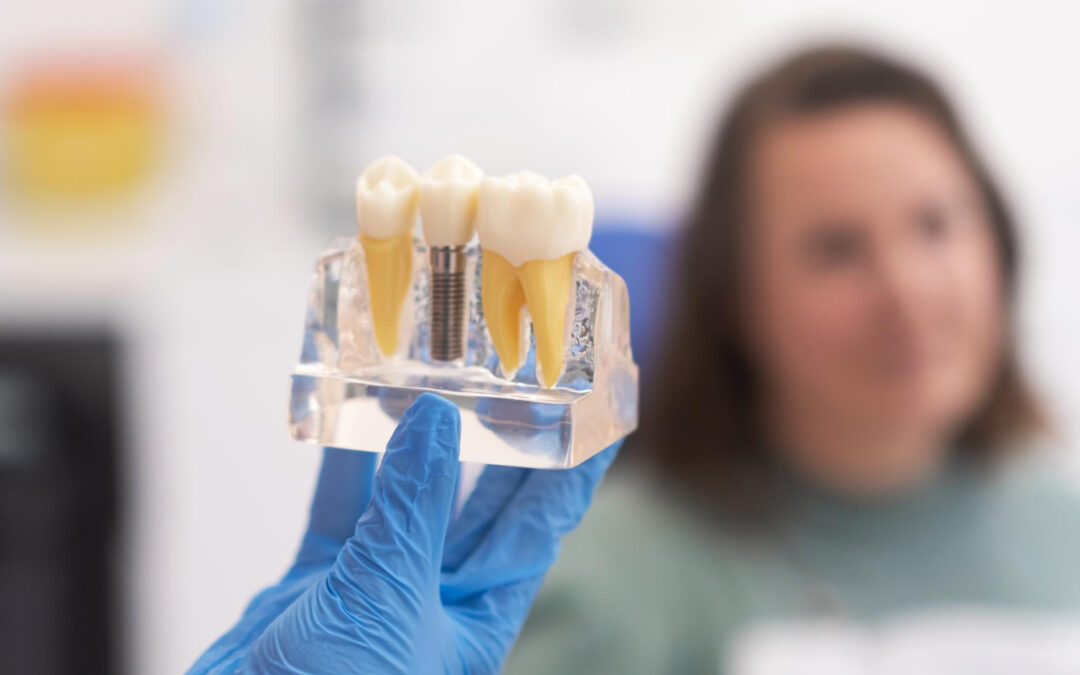Getting a dental implant crown is a big decision, and it’s essential to gather all the information you need. For many people, replacing a missing or damaged tooth with a durable, natural-looking option can be quite appealing. However, having some questions and concerns before moving forward with the procedure is understandable. Addressing these questions can ease your mind and help you make more informed decisions.
If you’re considering getting a dental implant crown, you might wonder about the process, costs, and what to expect from the results. These inquiries are essential to preparing for your dental journey and ensuring you receive the best care. Let’s delve into some of the key questions you should ask before committing to a dental implant crown.
What Materials Are Used in the Dental Implant Crown?
Choosing the right material for your dental implant crown is crucial since it affects the appearance and durability of your new tooth. Here’s a breakdown of the most common materials you might encounter:
- Porcelain: Known for its natural appearance, porcelain crowns mimic the translucence and color of real teeth. This makes them a popular choice for front teeth, where aesthetics are important. However, they can be more brittle compared to other materials.
- Ceramic: Similar to porcelain in appearance, ceramic crowns are also favored for their lifelike qualities. They’re less prone to wear down opposing teeth, which can be advantageous.
- Metal: Metal crowns are incredibly strong and long-lasting. Despite their durability, their metallic color can make them less desirable for visible teeth, but ideal for molars, where strength is prioritized.
- Porcelain Fused to Metal (PFM): These crowns offer a good balance of strength and aesthetics. The metal base provides stability, while the porcelain exterior offers a natural look. However, the metal underlayer can sometimes show at the gumline as gums recede over time.
Each material has its advantages and drawbacks. The best choice depends on factors like the tooth’s location, your budget, and your personal preferences. It’s essential to discuss these options with your dentist to see what suits you best.
How Long Does the Process Take?
When considering a dental implant crown, one key aspect is the timeline from start to finish. Getting a dental implant crown isn’t something that happens overnight. The entire process involves several steps, including:
- Initial Consultation: Your dentist will assess your dental health and discuss your options. This visit can help determine if you’re a good candidate for an implant crown.
- Preparation and Implant Placement: Once the plan is set, the dentist will place the implant into your jawbone. This procedure is followed by a healing period called osseointegration, which allows the implant to integrate with the bone, which can take several months.
- Abutment Placement: After the implant fuses successfully, an abutment is attached to serve as a base for the crown.
- Crown Installation: Finally, the custom-made crown is placed atop the abutment, completing your new smile.
The timeframe for each stage can vary based on individual health conditions and how well the jawbone accepts the implant. Be sure to discuss the expected timeline with your dentist to prepare for the duration of the process.
What Are the Costs Involved?
When planning for a dental implant crown, understanding the financial commitment can help you budget effectively. Implant crowns can be a significant investment, so being informed about potential expenses is key.
- Cost of Materials and Procedures: The material you choose for your crown will influence the price. Porcelain and ceramic are typically more expensive than metal. Additionally, the complexity of your specific case can affect costs. A straightforward procedure might be less costly than one requiring additional treatments.
- Insurance Coverage: Sometimes, dental insurance can help cover part of the cost of a dental implant crown. Coverage usually depends on your insurance provider and plan details. To avoid surprises, it’s wise to check with your insurer about the specifics.
- Out-of-Pocket Expenses: Even with insurance, you might face out-of-pocket costs. Factors such as copays, deductibles, and any non-covered parts of the procedure can contribute to this expense. Discuss these factors during your consultation to have a clear picture.
Understanding your financial responsibilities beforehand allows you to prepare and consider different payment options, ensuring the process aligns with your financial comfort.
What Is the Expected Lifespan and Maintenance?
A dental implant crown is designed to be a long-term solution, but its lifespan can vary based on several factors. These crowns can last many years with proper care, but maintaining them is crucial for longevity.
On average, a well-maintained dental implant crown can last 10 to 15 years, sometimes even longer. The longevity depends on your oral hygiene habits, the quality of the crown, and the care provided during regular dental visits.
Keeping your implant crown in good condition requires the same attention you’d give to natural teeth. Here are a few tips to help:
- Brush twice daily with a soft-bristled toothbrush to remove plaque and debris.
- Floss carefully around the implant to prevent gum disease, which can affect the crown’s stability.
- Schedule regular dental check-ups to monitor the health of your implant and make any necessary adjustments.
Regular care and attention will not only prolong your crown but also maintain the overall health of your mouth.
Are There Any Risks or Complications?
As with any dental procedure, some risks and complications might arise when getting a dental implant crown. Awareness of these can prepare you for any challenges during your recovery period.
- Potential Issues: Common complications could include infection at the implant site, damage to surrounding teeth or nerves, or implant failure. These are usually rare, but knowing about them helps you take precautions.
- Reducing Risks: To minimize risks, follow your dentist’s aftercare instructions diligently. This includes maintaining oral hygiene and attending follow-up appointments to ensure everything is healing properly.
By staying informed and proactive in your care, you can enjoy the benefits of your dental implant crown with minimal worries.
Maintaining Your Smile in Parma, Ohio
Choosing to get a dental implant crown involves considering many elements from material choice to costs and maintenance. Each aspect is vital to ensuring your tooth replacement journey is as smooth as possible. A well-informed decision will restore your smile and reinforce the comfort and confidence that come with it.
If you’re contemplating a dental implant crown in Parma, Ohio, remember that investing the time to ask crucial questions can make all the difference. Seek professional guidance to ensure your treatment is tailored to your unique needs and provides optimal results.
Making an informed decision about your dental care is important, especially when it comes to improving your smile with a dental implant crown. If you’re ready to explore this option further, Jordan M. Job DDS offers personalized care in Parma, Ohio to support your dental needs and guide you toward a healthier, more confident smile.














